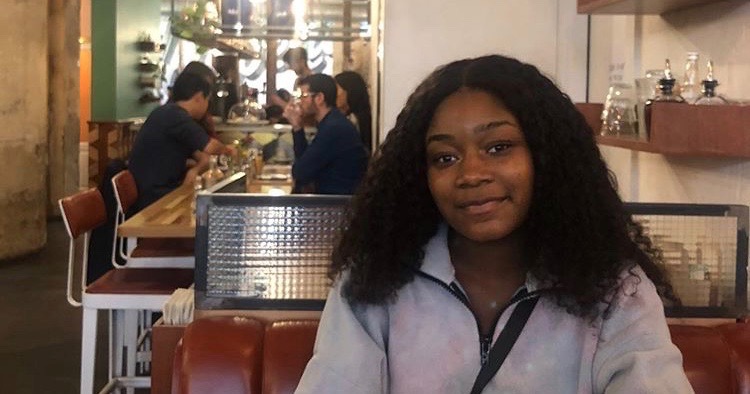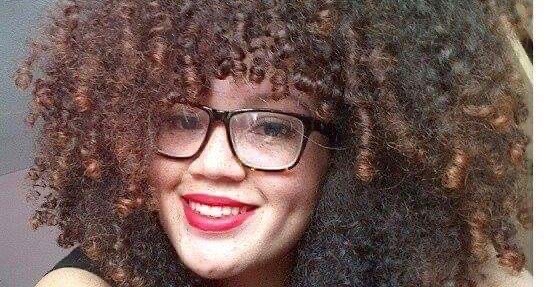
‘It’s like an invisible war’: Black students on life at a majority-white uni
Black students face a hostile environment that hides in plain sight
I was out shopping in my uni city of Edinburgh and heard someone behind me say ‘sUcH loOveLy hAiR!’ I turned around only to see an old white lady’s hand moving towards my braids in slow motion. Her younger companion quickly ushered her away but it was still a whole scene, created by the fact that I was seen as a spectacle. Things like this happen all the time. Objectifying treatment in majority-white spaces means all-black spaces like the Afro-Carribean Society (ACS) often become healing circles where your identity is upheld by those around you. You can show up as yourself without fear of being judged or racially profiled.
For the past few weeks we’ve seen horrific racism exposed at universities all over the UK, from blackface to racist group chats. But this comes as no surprise, black students have always experienced a hostile environment in education, from Western-biased curricula to micro-aggressions.

Despite the typical focus on overt racism, systemic racism at universities has not been acknowledged enough. This means that the lived experience of black students and academics can be alienating. We face curricula that prioritise whiteness and the faculty supporting our studies are rarely black. We asked 15 black students how they navigate uni life. Here’s what they had to say:
‘Microaggressions and whitewashed textbooks’

Being the only brown-skinned black girl on my course is like preparing for an invisible war that I’m the only soldier in. Microaggressions, whitewashed textbooks and ignorant statements are just a few of the enemies that I am expected to fight alone. It shouldn’t be like this.
Isioma, London
‘Is my tutor racist or sexist, or both?’
The issue with systemic racism is that it intersects with other forms of discrimination, like sexism. Is my tutor ignoring me when I speak because he doesn’t value female voices or because he thinks black people are intellectually inferior?
Joycelyn, Cardiff
‘Barely being acknowledged’

Being the only black student in a seminar for me has meant saying a well thought out and executed answer for a question and barely being acknowledged whilst my white associate says the same thing but gets praised.
Shiko, Birmingham
‘Excluded and ignored’
I haven’t really experienced overt racism, I’ve just experienced being excluded and ignored in a group project. My tutor didn’t do much. I had to move groups myself and told my tutor afterwards.
Mo, London
‘I’m tired of having to interact with a whitewashed curriculum’

I’m going into my final year of university and have had zero black lecturers. I’m tired of having to interact with a whitewashed curriculum.
Thara, Bristol
‘To say I sound white is so ignorant’

Meeting people for the first time after only speaking to them over messages you can see how shocked they are. I’ll admit, I sound fairly posh, but to say I sound white is so ignorant that many people don’t understand. A compliment would be ‘wow, you are so eloquent,’ which I have been told on multiple occasions. But an insult is when you pre-judged that I was going to sound a certain way because of where I live and how I look.
Katelyn, Lincoln
‘I made my own tribe’

I felt othered, it may not have been blatant or even intentional, but I felt it. The stares, the intrusive questions about my hair, the “where are you really from?”. I knew I couldn’t fit in with them, so I made my own tribe. I intentionally surround myself with black people, black love and black joy at my university; they make me feel seen, appreciated and loved.
Kezia, Birmingham
‘Everyone making decisions about my learning and my welfare… has been white’
Everyone making decisions about my learning and my welfare so far in Cambridge has been white. I have never encountered a black person in any place of authority during my time at the university.
Charlene*, Cambridge
‘Arrogant opinions on race are often justified using the prestige of going to Oxford’

Systemic racism at Oxford manifests from how white the curriculum is to the lack of representation in our student body. I didn’t have the opportunity to learn about politics that isn’t Western until my second year. Arrogant opinions on race are often justified using the prestige of going to Oxford. People who think they can speak on race have their biases and opinions fortified by the status of the university. I’ve also heard a lot of problematic side comments from students who think that there are enough minorities.
Tofi, Oxford
‘People say ‘you’re so articulate for a black person”
Moyo says micro-aggressions are common at Leeds. Racial micro-aggressions are subtle statements that reveal individual biases, which are often linked to anti-black stereotypes: “People make certain remarks like “you’re so articulate for a black person,” Moyo said.
Moyo, Leeds
‘I questioned whether I was black enough’

My first “good” night out in Cambridge was after having gotten to know some of the other black students in my year. There are 11 black first years in my college. The four of us went to the first ACS event of the year; a house party which was kinda fun but a little crowded and also made me question whether I was “black enough”.
Funnily enough, we had all shared this anxiety over our blackness. One of my friends is from Northern Ireland and this white guy in the queue was like “where are you from?”. She told him. He said: “I can’t believe your accent!”
She said: “Is it because I’m black?”
He said: “Yeah!” And we all felt really deflated.
Rachel, Cambridge
‘I was told my hairstyle was unprofessional and unfit for work’

Credit: Funmi Lijadu (@fumlij)
Walking into the staff room at work, my manager approached me abruptly before giving me a long, disdained look. He said that I could not work today because my hairstyle was ‘unprofessional’ and ‘unfit for work’. He asked me to leave.
Christine, Sheffield
‘People use racial slurs and debate the ‘pros and cons’ of slavery’
Being here has meant listening to people use racial slurs or debate the “pros and cons” of slavery, being the subject of fetishisation, constantly feeling at best alienated, and at worst, traumatised. This environment is not somewhere black students go to thrive. It has been something I’ve constantly wondered if I’d be able to even survive.
Mirabelle, Durham
‘I get stared at… all the time’
Henzo shared his experience of being hyperaware of his appearance due to the fact that black men are generally seen as intimidating or likely to be involved in crime: “As a black man, I just get stared at for doing normal things really, it’s all the time.”
Henzo, Lincoln
‘I was constantly told my afro curly hair was not professional’

One of my law modules was professionalism and I was constantly told my afro curly hair was not professional, that I might wanna consider doing something about it. When I challenged this, I was seen as the problem. I was also met with absolute disdain from one of my lecturers. My presence had always been loud, and I used to have cherry red huge big afro curly hair and an equally loud fashion sense. He made comments when mentioning intellectual texts, saying “I wouldn’t expect the likes of you to read that.
Alisha, Birmingham
All of these experiences reveal the fact that black students experience a lot that many non-black individuals are not aware of. But this is just the tip of the iceberg. Black people are met with a society that views us from the perspective of difference and categorisation. This othering is illogical as black people are only a minority in Western spaces. For instance, a white person in Ghana becomes a minority. So let’s recognise that the language of ‘minorities’ is contextual. Compared to white people, black individuals are a global majority.
There is no single stereotype that captures the diversity of blackness. Black people do not owe the world performances of assumptions or stereotypes. We also shouldn’t have to be subjected to abuse from people who use ‘debate’ or ‘banter’ as a chance to deny us our humanity. The truth is that race is not a card that black people play for fun. Since the dehumanising campaigns of slavery and scientific racism, race has been a reality that black people are forced to grapple with. The world receives us according to the man-made ideologies and categories that are tied to our skin tone and features.
This means that race has concrete implications for our lives, especially when we are constantly confronted by gatekeepers and powerful people who don’t look like us. We don’t want to keep begging others to see that we deserve to exist with dignity, joy and respect. Race may not define who black students are, but it informs how we are treated and received. The world needs to be aware of our experiences in academic spaces, so we can move towards a world where black students aren’t disrespected.
Related stories recommended by this write:
•Don’t let videos of US police brutality fool you, the UK is just as racist
•
•
*Name changed for anonymity





















